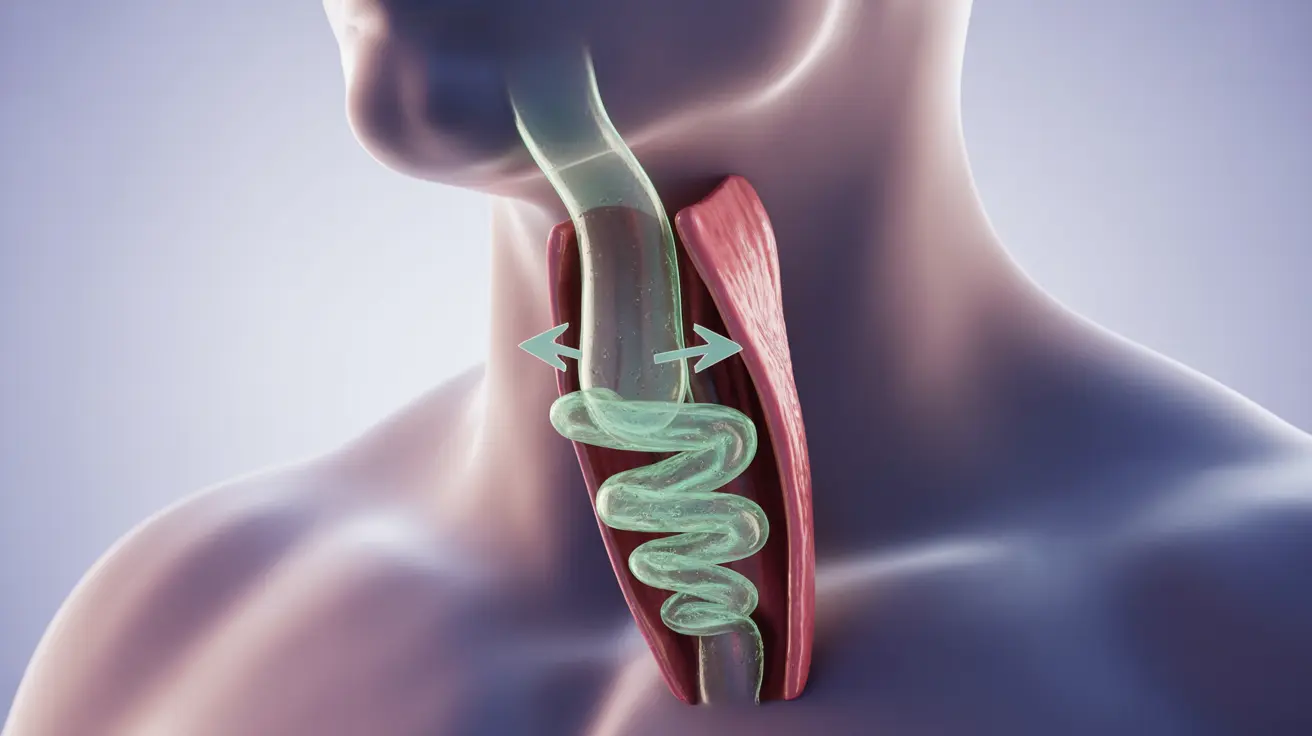If you've noticed changes in your voice accompanied by acid reflux symptoms, you might be experiencing the effects of Gastroesophageal Reflux Disease (GERD) or its close relative, Laryngopharyngeal Reflux (LPR). These conditions can significantly impact your vocal quality, causing frustrating symptoms that affect both your communication and confidence.
Understanding how GERD affects your voice and knowing the available treatment options is crucial for managing these symptoms effectively. Let's explore the connection between acid reflux and voice changes, along with proven strategies to protect your vocal health.
How GERD and LPR Affect Your Voice
When stomach acid travels up into your esophagus and reaches your throat and voice box (larynx), it can cause inflammation and irritation of the vocal cords. This acid exposure can lead to various voice-related symptoms:
- Persistent hoarseness
- Chronic throat clearing
- A feeling of a lump in the throat
- Voice fatigue
- Difficulty projecting your voice
- Changes in pitch or tone
Unlike traditional GERD symptoms, voice changes from LPR can occur without obvious heartburn, earning it the nickname "silent reflux." The damage occurs gradually as acid repeatedly irritates the delicate throat tissues.
Identifying Reflux-Related Voice Changes
Voice changes caused by GERD or LPR often have specific characteristics that distinguish them from other vocal problems:
- Symptoms are typically worse in the morning
- Voice quality may improve throughout the day
- Hoarseness can worsen after eating certain foods
- Speaking becomes more difficult after lying down
- Symptoms may accompany throat clearing or coughing
Treatment Options for Voice Problems
Medical Treatments
Several medical approaches can help manage GERD-related voice changes:
- Proton pump inhibitors (PPIs)
- H2 blockers
- Antacids
- Voice therapy with a speech pathologist
- Consultation with an ENT specialist
Lifestyle Modifications
Making specific lifestyle changes can significantly improve both GERD symptoms and voice quality:
- Elevating the head of your bed
- Avoiding meals within 3 hours of bedtime
- Maintaining a healthy weight
- Limiting trigger foods and beverages
- Staying hydrated throughout the day
- Using proper speaking techniques
When to Seek Medical Help
It's important to consult a healthcare provider if you experience:
- Voice changes lasting longer than 2-3 weeks
- Difficulty swallowing
- Persistent throat pain
- Unexplained weight loss
- Breathing difficulties
- Coughing up blood
Frequently Asked Questions
How does GERD or laryngopharyngeal reflux (LPR) cause changes in my voice?
GERD and LPR cause voice changes when stomach acid irritates and inflames the vocal cords and surrounding throat tissues. This inflammation can cause swelling and changes in the vocal cords' ability to vibrate normally, resulting in voice alterations.
What are common voice symptoms caused by acid reflux, and how can I tell if my hoarseness is related to GERD or LPR?
Common symptoms include morning hoarseness, voice fatigue, chronic throat clearing, and difficulty projecting your voice. If these symptoms improve throughout the day and worsen after meals or lying down, they're likely related to GERD or LPR.
What treatments are available to improve voice changes caused by acid reflux or silent reflux?
Treatment options include medication (PPIs, H2 blockers, antacids), voice therapy, and lifestyle modifications. Working with both a gastroenterologist and speech pathologist can provide comprehensive care for voice-related symptoms.
Can lifestyle changes help prevent or reduce voice problems caused by GERD or LPR?
Yes, lifestyle modifications such as dietary changes, weight management, elevated head positioning during sleep, and proper hydration can significantly reduce voice problems caused by acid reflux.
When should I see a doctor if my voice remains hoarse or changes persist despite reflux treatment?
Seek medical attention if voice changes persist beyond 2-3 weeks, if you experience difficulty swallowing, persistent throat pain, or if your symptoms don't improve with initial treatment. These could indicate a need for additional evaluation or treatment adjustment.




